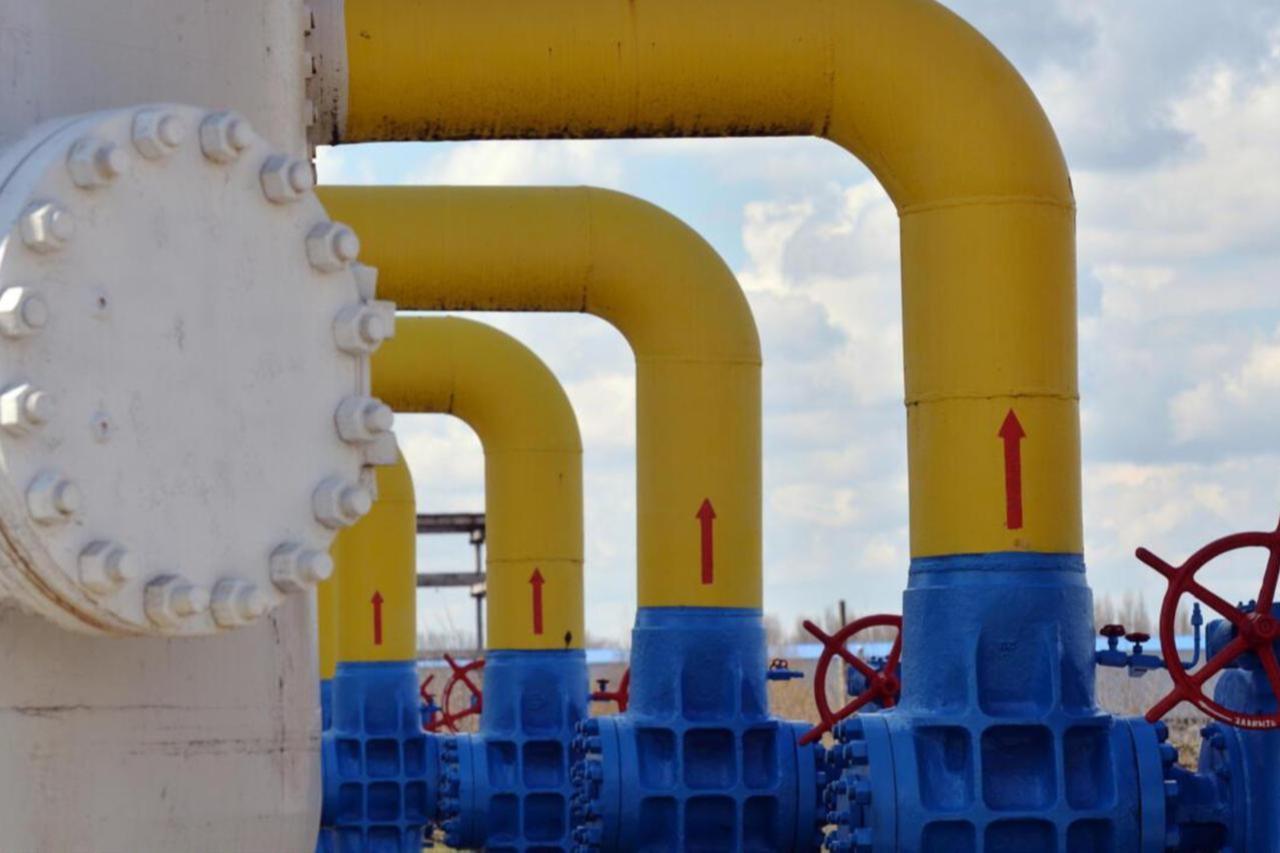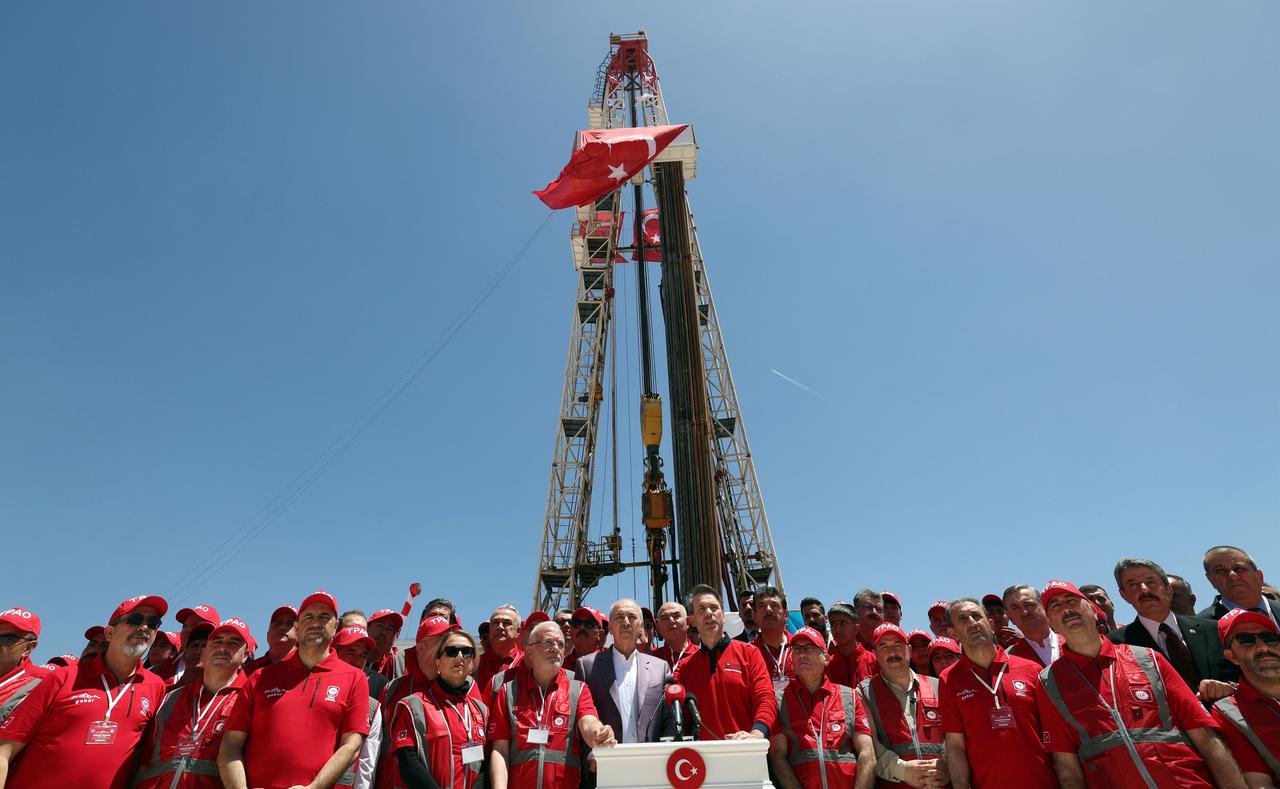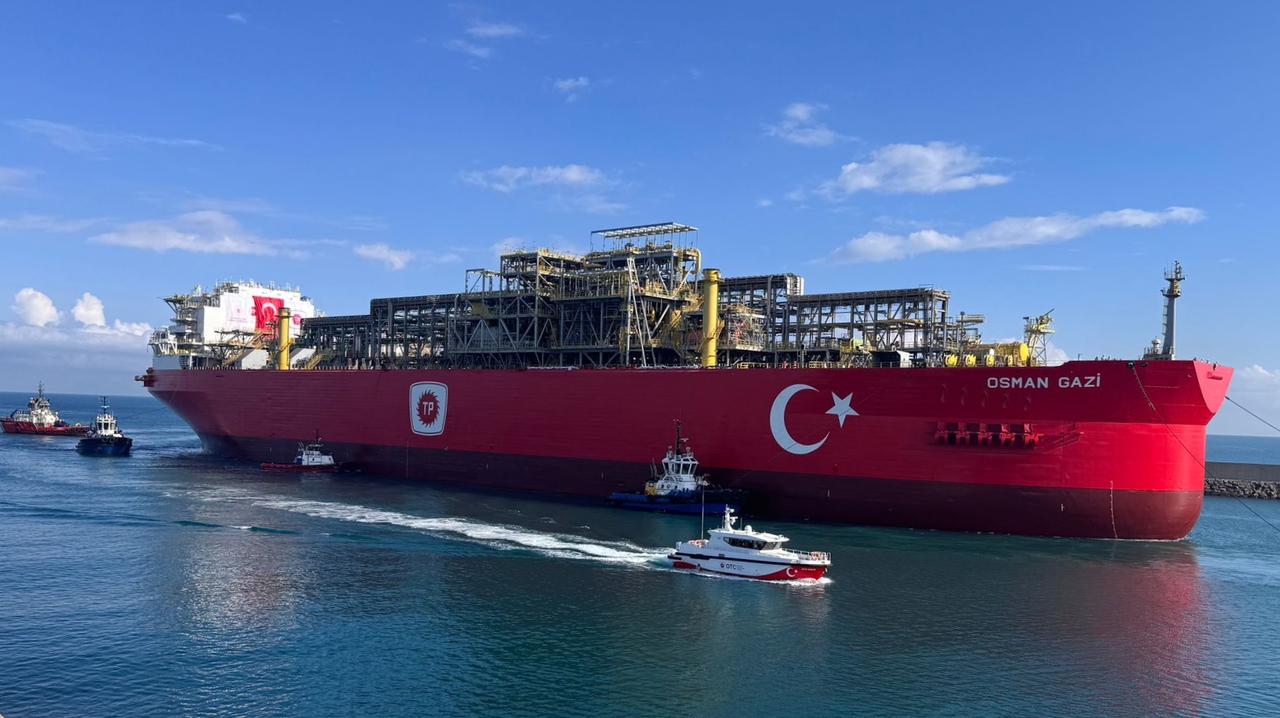
Türkiye will begin its first natural gas exports to Syria on Saturday while targeting a record 10,000 megawatts (MW) of renewable energy capacity growth this year, Energy and Natural Resources Minister Alparslan Bayraktar announced during comprehensive energy sector updates.
Speaking at the state-owned Anadolu Agency (AA) on Wednesday, Bayraktar detailed multiple major energy initiatives, including Syria energy infrastructure reconstruction, significant shale oil discoveries in Diyarbakir, and expanded Black Sea natural gas production capabilities.
"This Saturday, we will export natural gas coming from Azerbaijan through Kilis to Aleppo," Bayraktar said, marking the beginning of a trilateral energy cooperation between Türkiye, Azerbaijan and Syria.

The natural gas pipeline from Kilis to Aleppo was completed in May, enabling the first gas flow scheduled to begin Aug. 2. Türkiye is actively participating in Syria's energy infrastructure reconstruction process in collaboration with Azerbaijan and Qatar.
The natural gas exports aim to significantly improve Syria's electricity supply, which currently operates for only three to four hours daily. "With the planned 6 million cubic meters of gas, we can implement 1,200 MW of electricity generation," Bayraktar said, targeting an increase to 10 hours of daily electricity supply.
Türkiye already exports electricity to northern Syria and plans to increase this export to 280 MW through existing lines. The previously used Birecik-Aleppo line with approximately 500 MW capacity is being restored despite significant damage on the Syrian side.
"With this line also coming into operation, a total of nearly 900 MW of electricity will reach Syria and the needs of approximately 1.6 million households can be met," Bayraktar explained.
The minister noted that partial lifting of sanctions has opened the way for these projects, emphasizing that energy projects will play an important role in normalizing life in the region and accelerating the return of Syrians.

Bayraktar also revealed significant developments in unconventional oil and gas exploration, particularly highlighting a collaboration between Turkish Petroleum Corporation (TPAO) and American companies in Diyarbakir.
"Here we are working with American companies. America is the biggest producer in this field. This is the technology that best applies this and makes America number one in oil and natural gas production in the world today," Bayraktar said.
The project focuses on extracting oil and natural gas trapped within rock formations using advanced unconventional production methods. Initial assessments have identified substantial reserves across four designated areas.
"In the evaluation made with partners in these four fields, 350 million barrels of reserves were determined," Bayraktar announced. However, the potential extends far beyond current assessments.
"We think that Diyarbakir has a potential of approximately 4 billion to 6 billion barrels of what we call shale gas or shale oil. I am talking about an area of 7,600 square kilometers. We are currently starting operations in only about one-12th of this area," he explained.
The project involves sophisticated drilling techniques in a 600-square-kilometer area north of Bismil, with plans for 24 vertical and horizontal drilling operations.
"We will first make vertical drilling, and we will dig. Then we will continue with 2-3 kilometers of horizontal drilling. In between, we aim to extract the oil that we think exists in it by cracking these rocks," Bayraktar detailed.
The timeline includes vertical drilling and fracturing operations within this year, with plans to explore the field through 24 wells and begin production within the next three years.

The Osman Gazi floating natural gas production platform is expected to enter service in summer 2026, completing the second phase of Black Sea natural gas production and serving 8 million households.
"After the activation is completed, we will have moved to a gas production that will double our current production as phase 2 from this platform. Approximately today's 9.5 million cubic meters will increase to 20 million cubic meters, from 4 million households to 8 million," Bayraktar said.
The massive industrial facility measures approximately three football fields in length and 58 meters in width, designed to process natural gas from the seabed. "By this time next year, we will have finished this second phase and reached 20 million cubic meters in production," he added.
A second floating production platform is planned for deployment, with Bayraktar noting: "That one will also move from the Far East towards Türkiye in December 2027, Allah willing."

Türkiye achieved 7,000 MW of renewable energy capacity growth in 2024 and aims to break records with 10,000 MW in solar and wind energy additions this year.
"Last year we built 7,000 MW of installed capacity. This year, in 2025, we will break a record, Allah willing, and reach 10,000 MW in solar and wind. Allah willing, Anadolu Agency will also contribute to this with 3 MW for your own needs," Bayraktar said.
The minister emphasized renewable energy's contribution to reducing foreign dependency by replacing imported coal and natural gas with domestic resources. The sector has created approximately 50,000 jobs over 10-15 years.
Later, addressing lengthy permitting procedures that can extend up to 48 months, Bayraktar explained reform efforts: "We did not eliminate environmental and forestry permits for renewable energy projects. We are shortening the processes. Processes will be able to operate in parallel with each other."